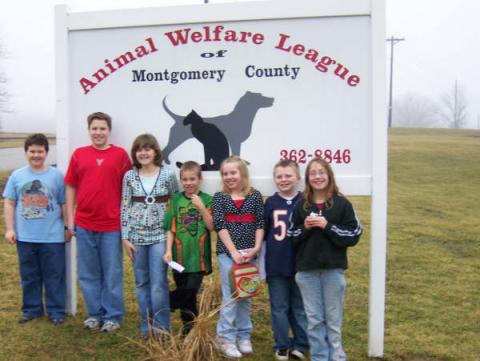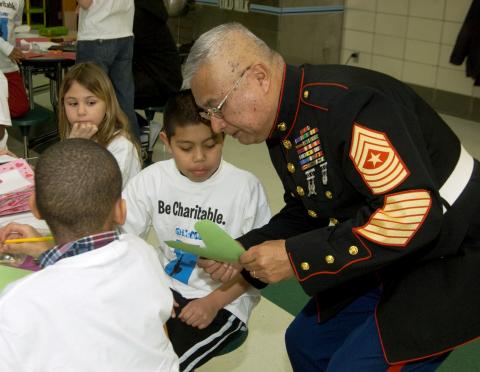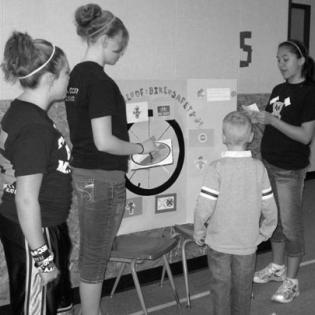Character Education Units and Lessons
Character Education Units and Lessons by Theme
Each of these ten character traits is featured in three units, one unit per grade level. Although the units are assigned a grade level and suggested month for teaching, all of these are aligned to standards for grades 6-8 and may be taught at any time.
Each unit is made up of five 20-minute lessons that bring out discussion and exploration in context. Character Education Lesson Plans are great for middle school advisory. Also great for small group activities. Narrow your search from the entire list of character education lessons here.
Vocabulary and Scope and Sequence attached below.
August - These middle school units and lessons define responsibility and explore the role responsibility plays in relationships and life success. How does developing responsibility equip students as world citizens who contribute to the common good?
- In the Sixth Grade Unit students examine texts to gain insights into people's choices about responsibility.
- In the Eighth Grade Unit students investigate and debate the impact on the common good of taking or not taking responsibility, as in readings about Abraham Lincoln.
September - These middle school units and lessons define respect and explore the role it plays in relationships and life success. How does developing respect equip students as world citizens who contribute to the common good?
- In the Sixth Grade Unit students are able to define respect, prejudice, and work to enhance their personal relationships.
- In the Seventh Grade Unit students relate personal values of respect to democracy. A plan for promoting respect in their school is also included.
- In the Eighth Grade Unit students learn about respect, especially as it relates to diverse groups. They also read and reflect upon the Universal Declaration of Human Rights.
October - These middle school units and lessons define trustworthiness and explore the role it plays in relationships and life success. How does developing trustworthiness equip students as world citizens who contribute to the common good? Students play games, analyze quotes, and write poetry in order to recognize trustworthiness in relationships and communities.
- In the Sixth Grade Unit students will use a game to discuss trustworthiness. They will also read a folktale and use their experiences trusting their family to learn more about the subject.
- In the Seventh Grade Unit students look into the importance of promises and building trust. In addition, they compare a trustworthy person to an object with metaphor or simile.
- In the Eighth Grade Unit students focus upon reciprocal trust within communities and the traits of trustworthiness.

November - These middle school units and lessons explore the role caring plays in relationships and life success. How can developing caring equip people as world citizens who contribute to the common good?
- In the Sixth Grade Unit students realize the importance of small acts of kindness and they will make a plan to carry out an act of kindness with a group or individually.
- In the Seventh Grade Unit students focus on celebrities and how they show they are caring through time, talent and treasure. This unit helps students find their own passions and how they can care.
-
In the Eighth Grade Unit students investigate and expand on what they care about. They'll also discuss a quote by Alexis de Tocqueville that relates democracy to philanthropy and caring.
December - Middle school units and lessons explore the role perseverance plays in relationships and life success. How can developing perseverance equip people as world citizens who contribute to the common good?
- In the Sixth Grade Unit students analyze how Martin Luther King Jr. used perserverance. Goals and setting strategies to achieve their goals are also components of this unit.
- In the Seventh Grade Unit students are able to focus on the concept of working toward their personal best. They relate this concept to perserverance and how they can use those skills to help address causes or issues they care about.
- In the Eighth Grade Unit students discuss the obstacles and barriers that may make achieving their goals more difficult. In addition, they also brainstorm ways to overcome hardships through humor and creativity.
January - Middle school units and lessons that explore the question: What role does fairness play in relationships and life success? How can developing respect equip people as world citizens who contribute to the common good?
- In the Sixth Grade Unit students compare and contrast their definitions of fairness. They also use role-play and a graphic organizer to better understand fair and unfair decision making.
- In the Seventh Grade Unit students read examples from the Civil Rights Movement to identify barriers and challenges to addressing unfair situations. They work to find strategies to respond to unfair situations and they also do a written reflection.
- In the Eighth Grade Unit students compare and contrast fairness with justice. Examples of downloading copyrighted music and Fair Trade principles are used to better understand justice, fairness, and equity.
February - Middle school units and lessons explore the role integrity plays in relationships and life success. How can developing integrity equip people as world citizens who contribute to the common good?
- In the Sixth Grade Unit students talk about the meaning of integrity, discuss their rationale for their thinking and do a writing exercise on a quote or personal experience related to integrity.
- In the Eighth Grade Unit students construct the meaning of integrity and decide what it means to be true to yourself and others. They also will read about examples and scenarios to decide if people are acting with integrity.

March - Middle school units and lessons explore the role honesty plays in relationships and life success. How can developing honesty equip people as world citizens who contribute to the common good?
- In the Sixth Grade Unit students define honesty, brainstorm examples of honesty and how it benefits the community. They will also journal and role-play to reflect on how honesty is always best.
- In the Seventh Grade Unit students relate honesty to following rules and making choices that support the common good. They also learn vocabulary related to honesty, role-play different scenarios, and they will reflect in writing on honesty and the common good.
- In the Eighth Grade Unit students explore how people can be dishonest with themselves and the impact that has on community and world issues. Personal responsibility and honest communication are also emphasized.
April - Middle school units and lessons that explore the question: What role does courage play in relationships and life success? How can developing courage equip people as world citizens who contribute to the common good?
- In the Sixth Grade Unit students will define courage and relate it to the concept of a hero. They will also learn about Nelson Mandela and how he demonstrated courage.
- In the Seventh Grade Unit students will learn about the courage of Jackie Robinson, brainstorm issues that require courage and they will define and reflect on their passions and what it means to be a hero.
- In the Eighth Grade Unit students will choose heroes from movies and identify their acts of courage. They will also learn the traits and key words of courage and look for them in themselves, the Founding Fathers and our current leaders.
